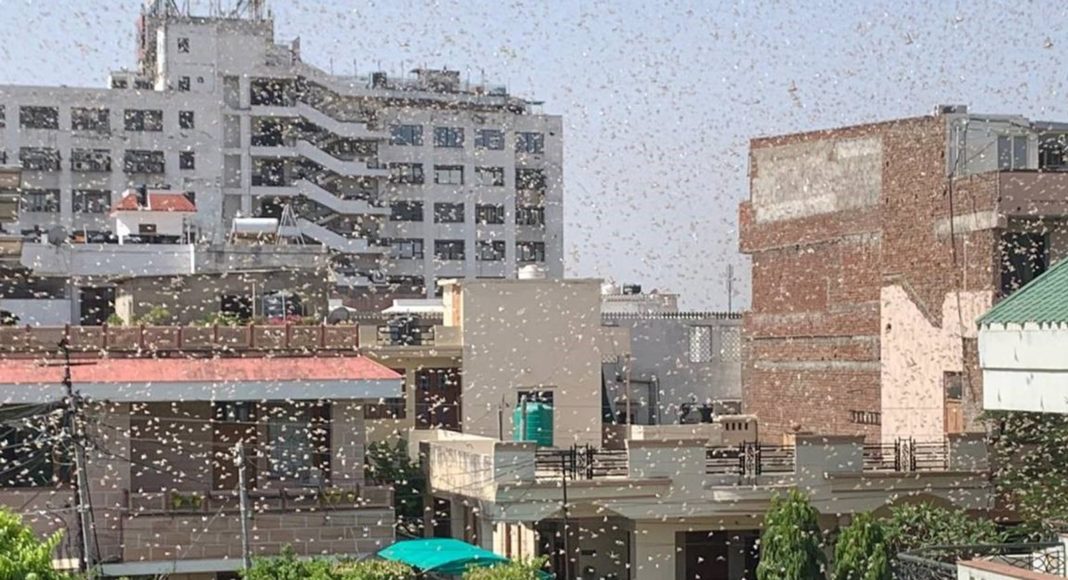Swarms of locusts that fly up to 90 miles a day are threatening crops and food security in India as the country battles the coronavirus pandemic.
Each swarm contains about 80 million adult locusts per square kilometre, and can eat as much food per day as 35,000 people.
The current swarms comprise “very young locusts that fly for longer distances, at faster speeds”, KL Gurjar, deputy director of India’s Locust Warning Organisation, told The Hindu newspaper.
Image:
Each swarm contains about 80 million adult locusts per square kilometre. Pic: Puneet Bali
This contrasts with “adults in the past who were sluggish and not so fast”, Dr Gurjar added.
There is grave concern over the autumn crop of rice, lentils, vegetables, sugarcane and fruits, due to be sown early next month.
The coronavirus pandemic has already created food insecurity for millions of Indians and the locusts’ invasion will pile even more pressure on farmers and livestock.
It is feared that the upcoming monsoon season will create favourable breeding grounds for the pests and they will multiply exponentially.
Qu Dongyu, director general of the UN’s Food and Agriculture Organisation, has warned that “the locusts, combined with the impacts of COVID-19, could have catastrophic consequences on livelihoods and food security”.
It is the first time in almost three decades that India has witnessed such widespread invasion by the insects, which have been flying from Iran and crossing into India from the province of Sindh in Pakistan.
Image:
Airforce helicopters, drones and fire trucks are being used to spray pesticides. Pic: Puneet Bali
Airforce helicopters, drones and fire trucks are being used to spray pesticides over crops and trees, while 11 monitoring stations have been set up across the affected states of Rajasthan, Punjab, Haryana, Uttar Pradesh, Gujarat and Madhya Pradesh.
“The government is taking the invasion very seriously,” said agriculture minister Narendra Singh Tomar.
“We are procuring 15 sprayers from Britain that will start arriving in the next 15 days. Besides, 45 more sprayers will be procured in a month or one-and-a-half months.”
The situation is also severe across the border in Pakistan, where locusts have destroyed large tracts of cotton and food crops.
Prime Minister Imran Khan has declared a national emergency.
India and Pakistan have set aside their differences to coordinate locust control operations and fight the pests together.
Image:
Each swarm can eat as much food per day as 35,000 people. Pic: Puneet Bali
Scientists link the present crisis to a series of cyclones in the Indian Ocean that hit a sandy area in the Arabian Peninsula which proed hospitable breeding conditions for locusts.
According to the UN, heavy rains and cyclones sparked “unprecedented” breeding and the explosive growth of locust populations on the Arabian peninsula early last year.
The insects have since fanned out from east Africa to India.




